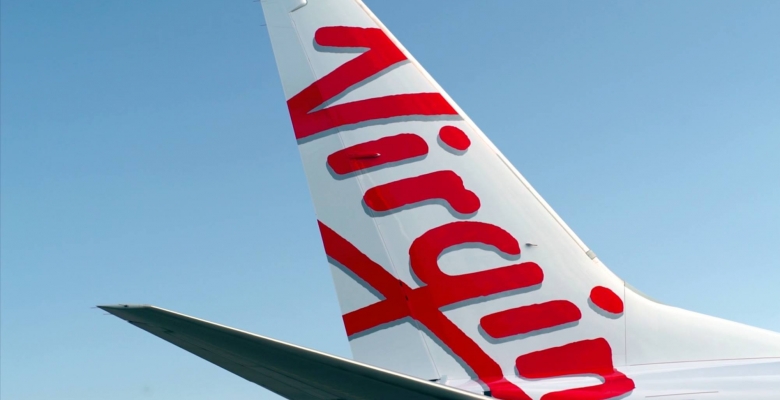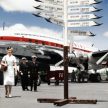The Virgin Australia board would be “tenacious” in chasing savings through its Better Business program as it seeks to improve the group’s financial position, chairman Elizabeth Bryan pledged on Wednesday.
Virgin made a net loss of $A224.7m in financial year 2016 but recorded a profit on an underlying basis and raised $A1.1 billion in equity to deleverage its balance sheet.
But Australia’s second biggest carrier has been struggling to stay in the black and its first-quarter results for the current financial year produced underlying pre-tax loss of $A3.6 million compared to a profit of $A8.5m in the same period last year.
Bryan told the carrier’s annual meeting in Brisbane that last year’s net loss reflected the upfront costs of restructuring at the airline in areas such as fleet and network optimisation and “right sizing’, a euphemism for staff cuts.
She told shareholders the company was still growing and had been forced to fight for its right to exist in an industry known for its volatility.
“But it’s also a company that has to produce profit and profitable investments for its shareholders,’’ she said.
The Virgin chairman said 2017 would be a year in which the Virgin group would maintain an “unwavering focus on improving our financial foundation and ensuring a healthy business’’.
Responding to a small shareholder disappointed in the company’s languishing share price and lack of dividends, Bryan said the disappointment was widely shared among the airline’s major shareholders.
“None of the shareholders have been happy with the movement of the Virgin share price,’’ she said. “Neither have the board, neither have the management team.
“What we can do about that is what John has outlined to you. We are growing this company, we’re investing in this company, we’re reducing the cost base of this company, we’re making this company operate more efficiently, we’ve reduced the leverage of this company.
“All we can really do is work on the business and allow the improvement in the business to shine through.’’
Chief executive John Borghetti said the trading environment remained “very tough’’, with domestic consumer sentiment still in the doldrums.
“As evidenced by our recent trading update for the first quarter of financial year 2017, industry trading conditions continue to be challenging,’’ he said. “In this environment, we are actively managing capacity in our domestic and international network with total sectors flown in the first quarter of FY17 declining 2.3 per cent on the prior corresponding period.’’
Borghetti said the airline was already making good progress with the Better Business program, which expects to deliver a net free cash flow of $300m annually by the end of the 2019 financial year.
Progress on plans to reduce the number of aircraft types in the fleet had included the sale of four Embraer 190 jets with a fifth due to be completed this month. A request for proposals for the disposal of leased ATR aircraft and the remainder of the E190s was well underway.
There had also been progress in terms of operating efficiencies, maintenance and engineering changes as well as cutting costs in procurement and supply chain processes.
The airline chief nominated services to China and the US as among “smart sustainable ways’’ the airline would boost revenue.
Two Chinese shareholders, the HNA and Nanshan groups, have invested in Virgin and hold a combined stake of about 40 percent. Virgin is forging a strategic alliance with HNA to boost its access to the growing Chinese travel market and plans to introduce direct flights between Asia and Australia next year.
It is also planning to increases services to North America to 18 per week with the introduction of five return Melbourne-LA services from April.
Borghetti said the focus for Virgin’s international airline, which recently won the Airline Ratings award for best business class and crew, was to boost non-stop sector flying to America and Asia over a three-year horizon.
“That is our future – Asia and America is our future internationally,’’ he said.
Asked about the Trump victory in the ecent US elections, Borghetti said it was not productive to speculate on what the new president would do but he did not believe it would affect US traffic.
He also confirmed Virgin's low-cost offshoot, Tiger, would retain its name and continue its international expanision. Tiger is switching from Airbus A320s to Boeing 737s over the next three years and has already started services Bali.
“This is a three-year horizon we’re talking about,’’ he said. “There will be a Tiger expansion and it will be a narrow- body operation.’’
Separately, Virgin announced Wendesday that it had chalked up a world-first deal to allow investors to earn frequent flyer points when they buy shares in an an initial public offering.
The airline’s majority-owned Frequent flyer scheme, Velocity, has teamed up with financial technology company OnMarket Bookbuilds in an innovative deal that allows investors to earn one point for every $A4 they spend on their investments in initial public offerings (IPOs) from companies listing on the share market. OnMarket BookBuilds offers a website and mobile app that plugs into the Australian Securities Exchange’s infrastructure to enable investors of all types to take part in IPOs.
There is no limit on the number of Velocity points that can be earned.
"We want Velocity members to be able to earn Points in every facet of their lives and we know wealth management is an important consideration for many Australians,’’ Velcoity chief executive Karl Schuster said in a statement.
The new deal is one of a flurry of agreements both loyalty schemes have announced this year as they compete for members.
Airb’n’b, major supermarket chain Coles and entertainment company TEG were just some of the partners airline loyalty signed up as the battle for frequent flyers heated up.
Qantas Frequent Flyer remains the bigger of the two with 11.5 million members at September 30 but Velocity has grown quickly since its launch under former Virgin chief executive Brett Godfrey in 2005 and now has a membership base of more than 6.4 million.
























